RV And Mobile Home Financing
Dreaming of hitting the open road in an RV or mobile home? Or, maybe you’re looking for an easier, cheaper way to set up a vacation home without building or buying a cottage. Either way, purchasing an RV, mobile home, or travel trailer is a popular option for many Canadians.
Once you have your eye set on the right RV, it’s time to think about financing. Read on to find out everything you need to know about finding the right financing for your RV or mobile home purchase.
Key Points You Should Know About RV Financing
- You can find RV financing at banks, credit unions, private lenders, and alternative lenders.
- Any type of RV can be financed, including motorhomes, fifth-wheelers, and pop-up campers.
- You can keep your RV financing costs low by purchasing a used RV, offering a bigger down payment, and securing a lower rate.
- Before applying for RV financing, consider the interest rate, loan term, and down payment amount.
Can You Finance An RV?
Yes, you can finance the purchase of an RV. That said, there are some key differences between financing a new RV versus a used one.
| New RVs | Used RVs | |
| Purchase Price | Typically much higher than used RVs | Often lower prices for used RVs. Most banks will finance RVs up to 10 years old. |
| Loan Terms | Longer term lengths | Shorter term lengths |
| Interest Rates | Often lower rates than used RVs due to their higher value and lower risk for lenders | Often higher rates than new RVs due to the lower value & increased perceived risk for lenders |
| Warranty Coverage | Comes with a manufacturer’s warranty | Limited or no warranty, depending on the age of the RV |
| Depreciation | Quick depreciation | Less depreciation |
| Down Payment | Bigger down payments are often required due to higher purchase price | Lower down payments are often required due to higher purchase price |
| Insurance | Higher premiums | Lower premiums |
RV Financing Features
Before you apply for RV financing, consider the following common factors involved:
Loan Amount
RVs tend to be much more expensive than regular road vehicles, usually ranging from $25,000 to $300,000 or more. As such, you’ll likely require a large loan amount.
Financing Rates
RV financing rates in Canada vary heavily depending on the RV, the lender, the loan term, and your finances and credit score. Regarding the RV itself, used RV financing rates may be higher than new RV rates because of its lower value and increased perceived risk for lenders.
Loan Terms
Loan terms for RV financing can range from 5 to 20 years or more, depending on the type of RV you’re buying and the lender. RV loans are typically longer than regular auto loans because RVs are usually more expensive. Generally speaking, the higher the loan amount, the longer the loan term.
Down Payment
RV and mobile home loans typically require a minimum down payment of about 10% of the purchase price. Some lenders may require even more. Depending on the purchase price of the RV or mobile home that you plan to buy, this can translate into a hefty amount.
As such, it’s important to start saving as early as possible so you have enough to cover your down upon loan approval. And the bigger the down payment, the lower your monthly loan payments will be.
Best Powersports Lenders
| Provider | Powersport Vehicles | Available Terms | |
|---|---|---|---|
 Loans Canada |
| Up to 60 months or longer | Learn More |
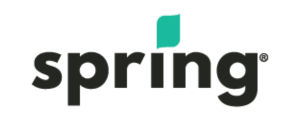 Spring Financial |
| Up to 60 months | Learn More |
 LendCare |
| Up to 180 months | Learn More |
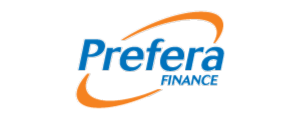 Prefera Finance |
| N/A | Learn More |
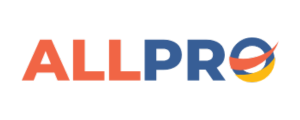 All Pro Financing |
| Up to 20 years | Learn More |
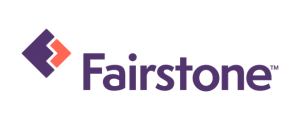 Fairstone |
| Up to 36-120 months | Learn More |
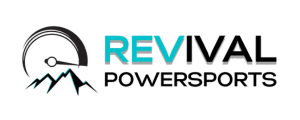 Revival Powersports Financing |
| Up to 20 years | Learn More |
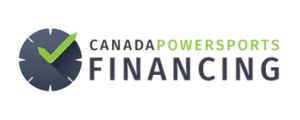 Canada Powersports Financing |
| N/A | Learn More |
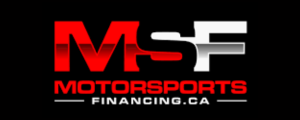 Motorsports Financing |
| Up to 180 months | Learn More |
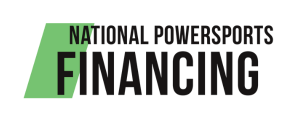 National Powersports Financing |
| N/A | Learn More |
 Breeze Powersports Financing |
| N/A | Learn More |
 TD Bank |
| Up to 84 months | Learn More |
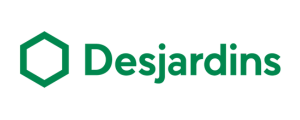 Desjardins |
| Up to 20 years | Learn More |
 Scotiabank |
| Up to 20 years | Learn More |
 RBC |
| Up to 20 years | Learn More |
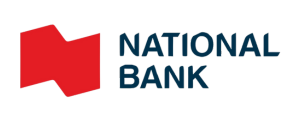 National Bank Of Canada |
| Up to 240 months | Learn More |
Loan Types For RVs And Mobile Homes
Below are the loan options you can choose from to help finance your purchase. Some of them may be more suitable for you than others. Be sure to understand them clearly before making your final choice.
- In-House RV Financing From A Dealer – Like with most vehicles, you may find a variety of financing packages through an RV dealership. So, rather than applying with a bank or other traditional lender, you would send installments directly to the dealer until your repayment plan is finished, with the vehicle’s title serving as collateral the whole time.
- Auto Loans – If you’d prefer to avoid in-house financing, you can also apply for an auto loan through a conventional lender, and then use it to finance almost any new or used RV. Here, the vehicle’s title may again be used as collateral until your repayment plan is complete.
- Conventional Mortgages – If the mobile home you buy is situated on land that you buy and own, a traditional mortgage may be an option for you. Traditional mortgages are ideal because loan amounts are usually higher and interest rates are lower than other mobile home financing options.
- Chattel Mortgages – A chattel mortgage is a type of loan used to cover the purchase of personal property that can be moved, such as a mobile home. The chattel, or personal property, serves as collateral for the loan. This differs from a traditional mortgage in which an immovable item, such as a house, secures the loan. Even if you move the mobile home to a different location at some point, the chattel mortgage will still stand.
How Do I Find RV Dealerships Near Me?
To find an RV dealership near you, consider the following tactics:
- Google Search – A simple Google search can help you find RV dealerships in your area that offer RV financing.
- Online Dealership Locator Tools – Many RV manufacturers and networks have online tools on their websites that can help you find authorized dealers near you. These tools let you search by location, RV brand, or model.
- Online Marketplaces – Online RV marketplaces often list dealerships that you can find near you, such as Autotrader.
- Bank RV Dealership Finder Tool – Some banks can help you find a local RV dealership on their website. Simply enter your province and city, and the tool will populate a list of available RV dealers.
Find RV Financing In Ontario
- RV Dealerships With RBC Financing:
- Canadream Inc., 576 Evans Avenue, Toronto, ON
- Glenn Burney Marina Ltd., 25 Glenn Burney Road, Parry Sound, ON
- RV Dealerships With TD Financing:
- VOS Motors – RV, 8161 Keele St – 3, Concord, ON
- McKenzie RV Trailers – RV, 2 Cardico Drive, Stouffville, ON
| Can You Buy An RV At An Auction In Ontario? Yes, there are RV auctions in Ontario that you may participate in to buy your next RV. Here are a few: Bryan’s FarmIAA Copart Canada |
Find RV Financing In Alberta
- RV Dealerships With RBC Financing:
- Canadream Inc., 2510 27 ST NE, Calgary, AB
- Carefree RV, 4510 51 Ave. NW, Edmonton, AB
- RV Dealerships With TD Financing:
- Trailertown, 5303 Blackfoot Trail S.E., Calgary, AB
- GO RV, 13072 Yellowhead Trail, Edmonton, AB
Find RV Financing In BC
- RV Dealerships With RBC Financing:
- Repo.com, 6139 Trapp Ave, Burnaby, BC
- Traveland RV, 20529 Langley Bypass, Langley, BC
- RV Dealerships With TD Financing:
- Canadream Campers, 7119 River Rd., Delta, BC
- Meridian R.V. Mfg. Ltd., 1690 Coast Meridian Rd, Port Coquitlam, BC
How To Apply For RV Financing In Canada
To apply for RV financing, follow these steps:
Step 1: Review Your Finances
Before you start searching for an RV or mobile home, consider how much you can afford to spend and how large of a loan you can qualify for. Crunch the numbers to determine how much money you have left over every month after paying all your current bills. This will give you a rough idea of how much you can dedicate to an additional loan payment.
Also, find out what your credit score is, as this can affect your eligibility for a loan, your loan limit, and your interest rate.
Step 2: Research Lenders
You can apply for RV financing in Canada through the RV dealership or directly with a bank or lender that offers this type of financing. When conducting your research, be sure to find out about the following:
- Preapproval offer: Getting pre-approved with multiple RV lenders can help you compare and find the lowest rates, which can help you save on interest payments over the loan term.
- Down payment requirements: Depending on your credit score and the purchase price of the RV, the amount you’ll need for a down payment may vary.
- Credit score requirements: Traditional banks may require good credit, while private lenders may have more lax credit criteria.
- Loan terms: As mentioned, loan term lengths may vary based on whether buying new or used. You may get a longer term by purchasing a new RV, while used RV financing tends to come with shorter loan terms.
Step 3: Gather Required Documents
Different lenders may have slightly different lending requirements, but generally speaking, you may be asked for the following:
- Proof Of Income: Recent pay stubs and tax returns are typical documents that provide proof of income.
- Proof Of Employment: A letter from your employer will show the lender that you’re steadily employed and how long you’ve been with the company.
- Photo Identification: You will likely be asked to show a valid government-issued ID, such as a driver’s license or passport.
- Proof Of Insurance: Lenders will likely require proof of an insurance policy on the RV before they approve financing.
- Credit Information: Your lender may want to conduct a credit check to verify your creditworthiness. In this case, you’ll need to provide consent to allow the lender to pull your credit report.
- RV Details: The lender may want to know details about the RV you’re financing, such as the make, model, age, and price.
Step 4: Complete The Application
Fill out and submit the loan application provided to you by the RV dealership or lender. Make sure all the required documents accompany the application.
Step 5: Review The Loan Terms
Carefully read the loan terms, including interest rates, loan amount, loan term, and monthly payments. If everything looks good, sign the loan agreement, then obtain the funds to complete your purchase.
| Do I Need A Special RV License To Get RV Financing? No, you don’t need a special RV license to obtain RV financing in Canada. However, you’ll need to provide a valid driver’s license. |
Can You Finance An RV With Bad Credit?
Yes, you can finance an RV with bad credit, but it may be more difficult and more expensive. Here are some points to consider:
- Interest Rates: Your rate may be higher if you have bad credit since the lender will be assuming more risk. This will make your loan more expensive.
- Down Payment: Your lender may require a larger down payment to reduce their risk if your credit score is low.
- Limited Loan Options: You won’t have as many lenders to choose from to help you finance an RV purchase with bad credit. Big banks may not work with bad credit borrowers, so your only option may be to apply with private or alternative lenders that specialize in bad credit RV loans.
- Less Favourable Terms: You may not have as many choices when it comes to loan terms and repayment options.
- Consider A Co-Signer: If you have bad credit, you may have a better chance of getting approved for RV financing at an affordable rate if you add a co-signer to the agreement.
Can I Get An RV If I’ve Declared Bankruptcy?
If you’re currently in bankruptcy, you will have much greater difficulty obtaining RV financing. However, some lenders specialize in helping borrowers who are going through bankruptcy. That said, your options will be very limited, and the loan may be more expensive.
You may have better luck getting RV financing if you’ve been discharged from bankruptcy. That said, it may still be somewhat challenging to get RV financing because your credit score will be damaged following bankruptcy. You’ll need some time to improve your credit score after you’ve been discharged to get approved for RV financing from traditional lenders.
Can I Get An RV If I’ve Filed A Consumer Proposal?
As is the case with bankruptcy, you may have some challenges getting approved for a loan to finance an RV purchase if you’re in the middle of a consumer proposal. But again, you may find a lender that specializes in financing for borrowers who are currently dealing with a consumer proposal, though this is rare.
You may be better off waiting until your consumer proposal is complete to apply for RV financing. If you have time, you may even consider waiting until after the R7 rating associated with your consumer proposal drops off your credit report to apply for RV financing. Otherwise, you’ll likely need to work with a private or alternative lender who specializes in bad credit RV loans.
Learn more: Can I Get A Loan While In A Consumer Proposal?
Calculate How Much RV You Can Afford
Before you start searching for an RV to buy, your first step is to consider what you can afford. Remember, RVs are typically much more expensive than your average vehicle, so you’ll want to review your existing finances and consider the cost of RVs before taking this big financial step.
The average cost of an RV in Canada can vary greatly. You could be spending anywhere from as little as $5,000 to well over $300,000 for an RV. Factors that influence how much an RV will cost include the following:
- New Vs Used: As is the case with a regular road vehicle, buying a used RV will typically save you a great deal of money on the purchase price.
- Condition Of The RV: An RV in pristine condition will come with a premium price, while an RV in poor condition that requires some upgrading and repair may be much cheaper.
- Type Of RV: There are several classes of RVs, which vary widely in price ranges. Here are some RV types that will impact how much you will pay:
- Motorhomes
- Travel Trailers
- Park Models
- Truck Campers
- Toy Haulers
Leasing Vs. Financing An RV
While financing is a popular way to buy an RV, leasing options are also available. So, what’s the difference between leasing and financing an RV?
| Leasing An RV | Financing An RV | |
| Monthly Payments | Generally lower than financing | Generally higher than lease payments |
| Ownership | No ownership at the end of the lease | Full ownership once the loan is fully repaid |
| Down Payment | Lower (often no down payment is required) | Typically higher |
| Customization | Limited or not permitted | You can modify the RV as you like |
| Maintenance | Costs are often covered by warranty | Your responsibility once warranty expires |
| Mileage Restrictions | Typically comes with limits | No limits |
Loans Canada Can Help You Find RV Financing In These Provinces
- Ontario
- Alberta
- Quebec
- British Columbia
- Nova Scotia
- Manitoba
- Saskatchewan
- New Brunswick
- PEI
- Newfoundland and Labrador
Additional Factors To Consider When Purchasing An RV
In addition to financing, there are other considerations to make before committing to this big purchase:
Do You Need A Special License To Drive An RV In Canada?
For the average RV, you do not need a special license to drive this type of vehicle. A standard, unrestricted driver’s license is usually enough. A specialized license will only be required if the vehicle is over a certain weight and has air brakes.
Be sure to check the specific licensing requirements in your province or territory, as the requirements may vary slightly across Canada.
Learn more: How To Get A Driver’s License In Canada
Insuring An RV In Canada
Just like a regular vehicle, RVs require insurance coverage. Getting an RV insurance policy is similar to insuring any other type of vehicle. You can buy RV insurance from banks and credit unions, insurance companies, and independent insurance brokers.
To ensure you get the best price for the coverage you need, consider using a brokerage, which will shop around for you to find the best policies based on your needs and the lowest premiums.
RV Maintenance Costs
In some ways, RV maintenance is unlike that of a regular vehicle. But there are many other factors involved in RV maintenance and repair that are unique to RVs that you wouldn’t have to worry about with a regular vehicle. Here are a few maintenance costs that you’ll need to budget for:
- Oil Changes
- Tire Rotations and Replacement
- Brake Inspections and Repairs
- Battery Maintenance
- Propane Refills
- Roof Maintenance
- Fresh Water System Sanitizing
- Slideout Maintenance
- Winterizing
- Engine Repairs
- Electrical System Repairs
- Furnace/AC Repairs
Generally speaking, routine maintenance on your RV can cost you roughly $1,000 per year. Not only should you budget for this, but you’ll also want to have some money set aside to cover last-minute repairs, which will inevitably occur, especially as the RV ages.
Interested In Financing For RV And Mobile Home Purchases?
From summer trips to the coast to leaf peeping in the fall. No matter where you live in Canada, an RV is a great way to explore the country. An RV or mobile home is an investment. But with the right financing, you can make your dream of hitting the road a reality. If you’re looking for financing for an RV or mobile home purchase, Loans Canada can help match you with a lender in your area.

